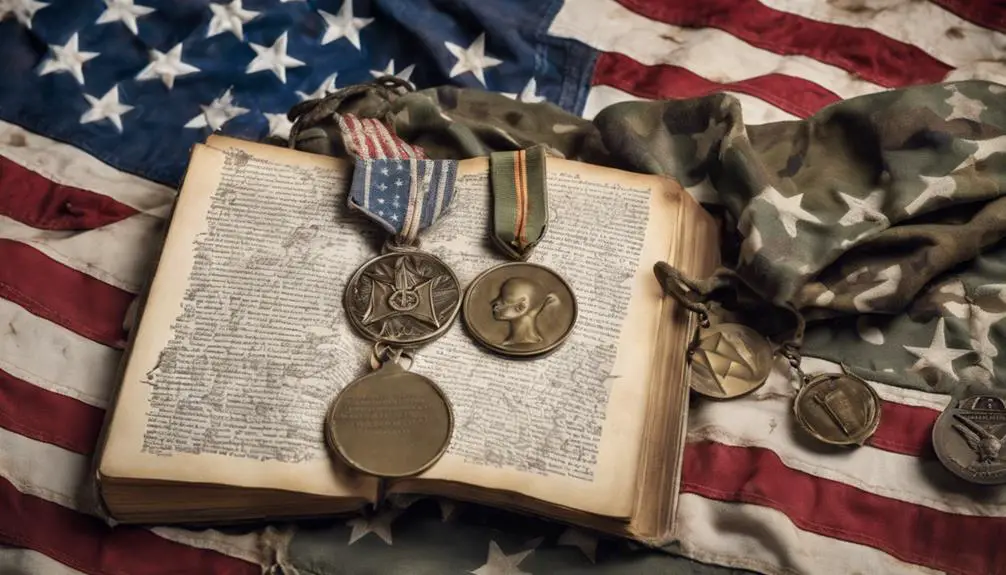You're about to explore a unique aspect of American military culture, where 'hooah' and 'Oscar Mike' are more than just words – they're a language that has evolved over decades of conflict, camaraderie, and humor. This dictionary of military slang takes you on a journey through World War I to Vietnam, showing how cultural and social contexts shaped the language of war. From essential acronyms like SITREP to humorous expressions that maintain morale, each branch has its own distinct vocabulary. As you explore the world of military slang, you'll uncover a complex, vibrant language that's both practical and poignant – and discover there's more to these words than meets the eye.
Military Slang A-Z
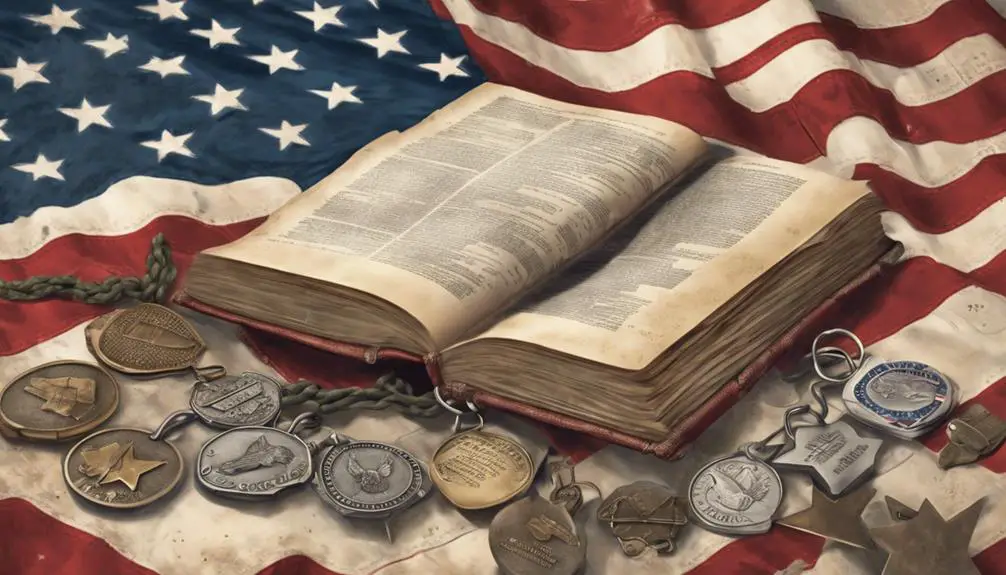
From 'Ace' to 'Zulu Time,' military slang encompasses a vast array of colloquialisms that have been used by American service members across various branches and conflicts. As you explore the world of military slang, you'll discover a rich history of expressions born from the unique experiences of service members.
Military Origins play a significant role in shaping this language, with terms often emerging from the trenches of World War I and II, the Korean War, and the Vietnam War. You'll find that slang evolution is deeply rooted in the cultural and social contexts of each conflict. For instance, the term 'foxhole' originated during World War I, referring to a soldier's makeshift shelter. Similarly, 'grunt' emerged during the Vietnam War, describing infantrymen.
As you investigate this linguistic landscape, you'll uncover a complex web of military slang that not only reflects the harsh realities of war but also the camaraderie and humor that defines military culture.
Most Common Military Acronyms
As you explore the world of military communication, you'll frequently encounter a plethora of acronyms that have become an integral part of the military's linguistic landscape. These abbreviations have evolved over time, originating from the need for important and efficient communication in high-pressure situations.
The acronym origins can be traced back to the early 20th century, when military personnel began using shortened forms of phrases to quickly convey complex information.
The abbreviation evolution has been shaped by the military's adaptability and the need for conciseness. For instance, the acronym 'SITREP' originated from 'Situation Report,' allowing personnel to quickly convey critical information in a concise manner. Similarly, 'COMMS' emerged as a shortened form of 'Communications,' facilitating rapid exchange of information.
Today, acronyms are an essential part of military communication, enabling personnel to swiftly convey complex information.
As you explore further into the world of military slang, you'll encounter a vast array of acronyms that have become an integral part of the military's linguistic landscape. Understanding these abbreviations is important for effective communication and situational awareness in high-stress environments.
Slang by Military Branch
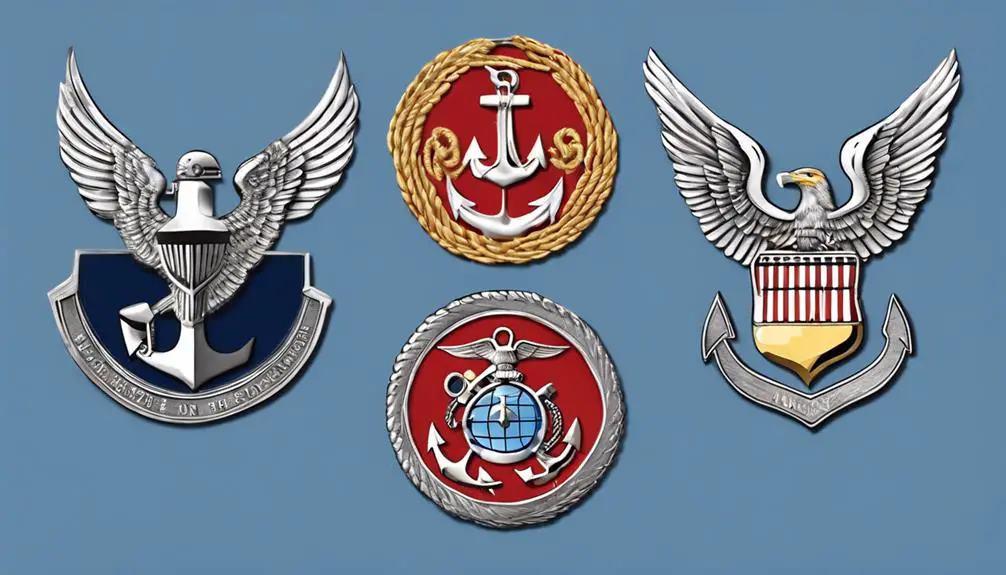
You'll find that each military branch has developed its unique slang, reflecting the distinct culture and history of its service members, with the Army's 'hooah' and the Navy's 'deck' being just a few examples of the diverse linguistic landscape within the US military.
The Marine Corps, for instance, has its own set of myths and legends, which are often reflected in its slang. Terms like 'Oorah' and 'Hoo-rah' are used to express enthusiasm or excitement, while 'grunt' refers to an infantryman.
The Air Force, on the other hand, has its own distinct vocabulary, with 'zoomies' referring to fighter pilots and 'bogies' meaning enemy aircraft.
The Coast Guard, with its unique maritime culture, has developed colloquialisms like 'CG' for Coast Guardsman and 'Buoy-tender' for a Coast Guard Cutter.
Even the language used to describe food differs between branches, with the Army using 'chow' and the Navy using 'grub'.
Military Ranks in Slang
Military ranks, typically denoted by insignia and formal titles, have their own colloquial counterparts in military slang, where a 'butterbar' refers to a second lieutenant and a 'mustang' is an officer commissioned from the enlisted ranks.
You'll find that many military ranks have nicknames that are used informally among service members. For instance, an officer in the rank of captain is often called a 'captain America', while a lieutenant colonel is referred to as a 'light colonel'.
When it comes to Ranks Explained, you'll notice that enlisted personnel have their own set of nicknames. A private first class is sometimes called a 'PFC', while a staff sergeant is referred to as an 'E-6'.
Officer Nicknames are also prevalent, with a major being called a 'major daddy' and a brigadier general being referred to as a 'one-star'. These colloquialisms serve as a way to build camaraderie and create a sense of unity among service members.
Battlefield and Combat Slang
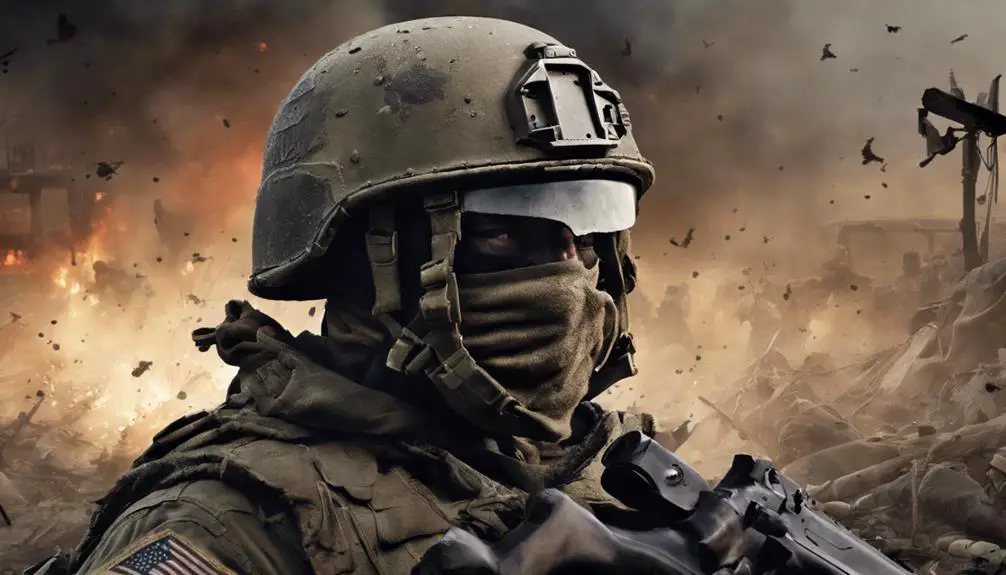
In the heat of battle, troops rely on concise communication, which is where battlefield slang comes into play, providing a shorthand for exchanging critical information under fire. You'll hear phrases like 'get some' (engage the enemy) or 'lay down suppressive fire' (provide covering fire to protect teammates). This tactical lingo is essential for quick decision-making and executing orders efficiently.
Here are some examples of battlefield slang:
- Hooah: an expression of enthusiasm or excitement, similar to 'yes' or 'hell yeah'
- Oscar Mike: 'on the move', indicating that your unit is moving out
- SITREP: 'situation report', a briefing on the current battlefield situation
- War Cry: a loud, fierce shout used to intimidate the enemy and boost unit morale
These phrases are more than just colloquialisms – they're a crucial part of the military's communication strategy. By using battlefield slang, troops can convey complex information quickly and accurately, even in the chaos of combat.
Humorous Military Expressions
As military personnel seek to maintain morale in the face of adversity, they often turn to humor, injecting levity into their language with humorous expressions that poke fun at the military's quirks and frustrations. You'll find that these expressions not only provide comic relief but also serve as a coping mechanism, allowing personnel to momentarily forget about the stresses of military life.
In the Army, you might hear phrases like 'Army Antics' to describe the chaotic and often absurd situations that arise during training exercises or deployments.
'Funny Formations' is another term used to describe the sometimes-ridiculous ways troops are arranged during drills or ceremonies. These humorous expressions serve as a way to poke fun at the military's more bureaucratic aspects, like excessive paperwork or red tape.
Decoding Military Lingo
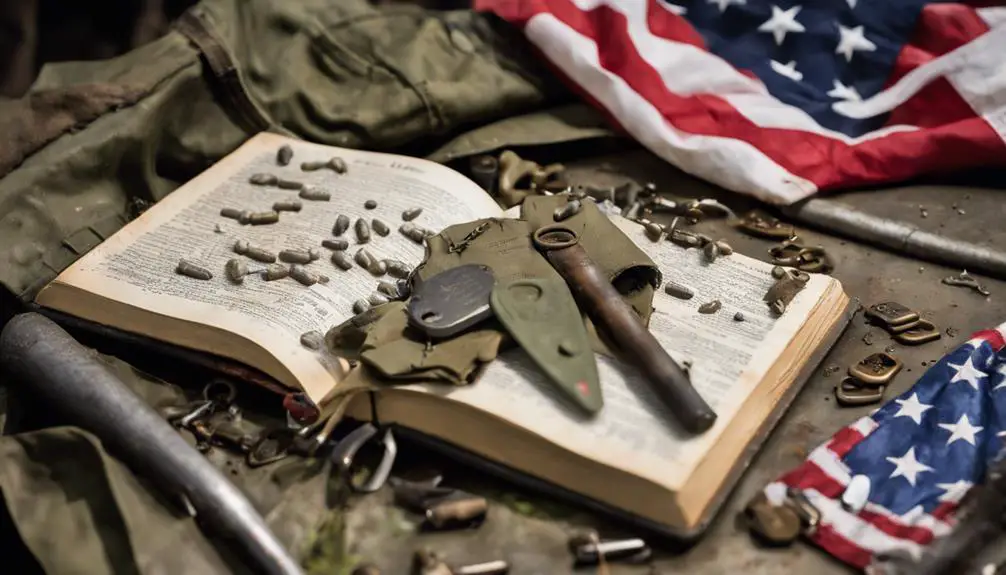
Your familiarity with military slang allows you to investigate cryptic messages, but understanding the nuances of military lingo requires a deeper exploration of its components, syntax, and cultural context.
As you explore further, you'll discover that military slang is more than just a collection of colloquialisms – it's a reflection of the cultural impact of military service on language evolution.
To truly decode military lingo, consider the following key aspects:
- Cultural significance: Military slang often originates from shared experiences, inside jokes, and cultural references that are unique to the military community.
- Linguistic adaptation: Military slang adapts to new situations, incorporating elements from various languages, acronyms, and technical jargon.
- Historical context: Military slang evolves over time, reflecting changes in military technology, tactics, and societal values.
- Subcultural identity: Military slang helps create a sense of belonging and identity within military subcultures, such as special operations forces or military branches.
Frequently Asked Questions
Is Military Slang Only Used by Enlisted Personnel or by Officers Too?
You might wonder if military slang is exclusive to enlisted personnel or if officers use it too. The answer lies in understanding rank dynamics and social hierarchy within the military.
While enlisted personnel often drive slang adoption, officers also use colloquialisms to build rapport and establish a sense of camaraderie. Officer culture emphasizes leadership roles and military etiquette, but that doesn't mean they're immune to slang's infectious nature.
In reality, both groups use slang to varying degrees, blurring the lines between formal and informal communication.
Do Military Slang Terms Vary Across Different Countries' Militaries?
As you explore the world of military slang, you'll find that the answer to your question is a resounding 'yes'. Military slang terms do vary across different countries' militaries, reflecting unique cultural and historical contexts.
Cross-cultural comparisons reveal distinct international dialects, shaped by local languages, customs, and operational environments. You'll discover that each country's military slang is a fascinating reflection of its own identity, making international dialects a rich area of study.
Are There Official Regulations Governing the Use of Military Slang?
When you explore the use of military slang, you'll find that there aren't many official regulations governing its use. While some militaries issue guidelines, it's not a standard practice.
Regulation enforcement is often lax, and slang standardization varies greatly. This lack of oversight allows slang to evolve organically, but also leads to inconsistencies and confusion.
As you investigate further, you'll see that it's a complex issue, with some militaries embracing slang and others discouraging its use.
Can Civilians Use Military Slang Without Being Seen as Disrespectful?
When using military slang, you should consider the cultural context to avoid cultural appropriation. Without a genuine connection to the military, using their language can be seen as disrespectful.
Language barriers can also lead to misinterpretation or misuse of terms. Be mindful of your audience and the origins of the slang to avoid unintended offense.
Are There Any Military Slang Terms That Are No Longer Used Today?
You've likely heard a million military slang terms that have been retired to the archives of history. When you dig through the dusty files of forgotten expressions, you'll find obsolete phrases that were once commonplace.
Take '23 Skidoo,' a term from the early 20th century meaning to make a quick exit. It's a relic of the past, no longer used today.
Similarly, 'Snafu' ( Situation Normal: All Fouled Up) has given way to more modern expressions, leaving these relics to gather digital dust.
Conclusion
As you've navigated this dictionary, you've likely felt like a newbie grunt trying to decipher the nuances of military slang. But now, you're a seasoned vet, fluent in the lingo of the Armed Forces.
Remember, as Sun Tzu said, 'Know yourself, know your enemy, and know your slang.' With this dictionary, you're one step closer to becoming a master of military lingo, able to decode even the most cryptic of communications.

